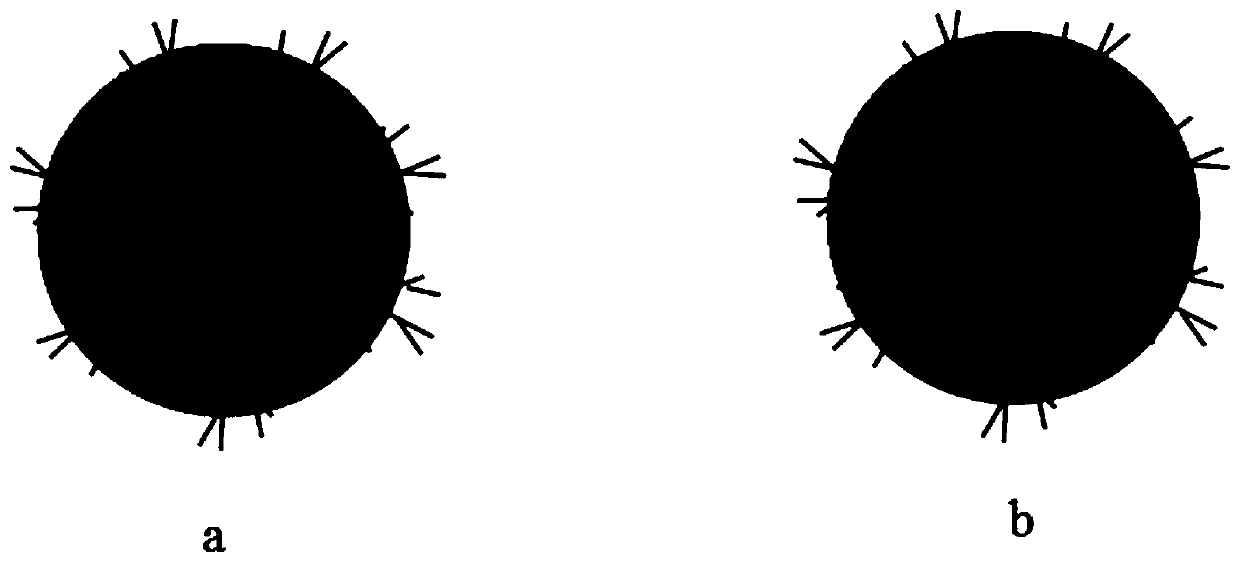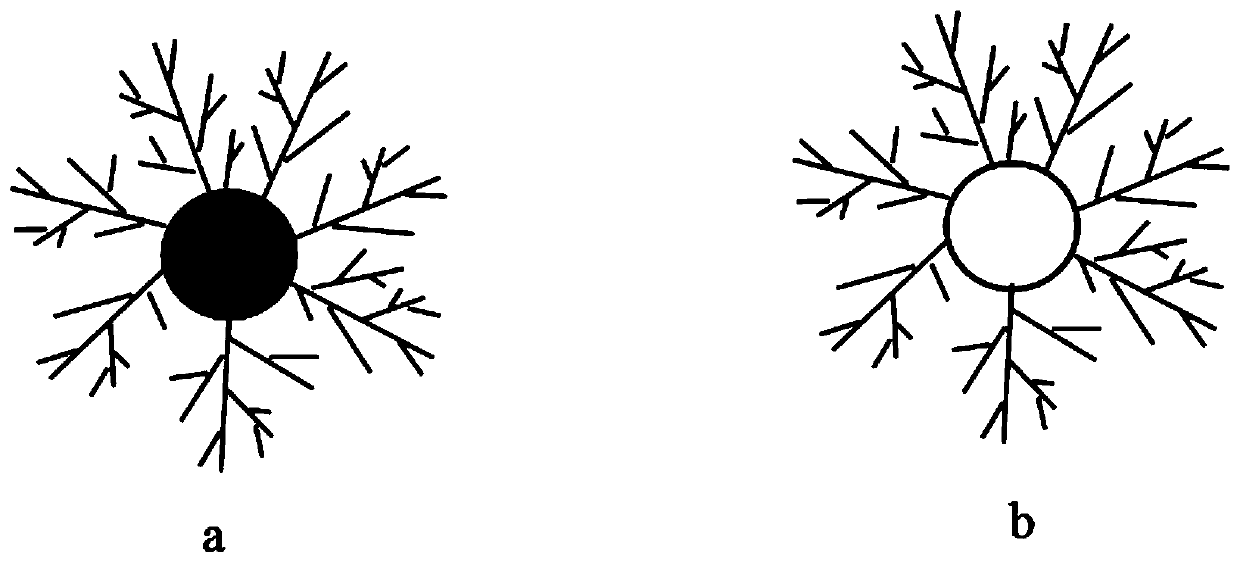Silicon-carbon composite negative electrode material and preparation method thereof, negative electrode sheet and preparation method thereof, and lithium ion battery
A negative electrode material, silicon carbon composite technology, applied in battery electrodes, secondary batteries, circuits, etc., can solve the problems of electrochemical performance and cycle life to be improved, volume expansion, poor cycle performance of lithium ion batteries, etc.
- Summary
- Abstract
- Description
- Claims
- Application Information
AI Technical Summary
Problems solved by technology
Method used
Image
Examples
Embodiment approach
[0035] In the present invention, the carbon particle material whose surface is covered with a silicon dioxide layer can be graphite particle material or other carbon particle materials whose surface is covered with a silicon dioxide layer, which can be obtained commercially, or can be obtained according to existing There are various methods of preparation. According to a specific embodiment of the present invention, the graphite particle material coated with a silicon dioxide layer on the surface is prepared according to the following method: dispersing 10g of acid-treated graphite particles in 80-120mL of In ammonia water, add 1-3mL silane coupling agent for functionalization treatment for 3-8 hours, then add 80-120mL ethanol and dropwise add 20-40mL ethanol solution containing 1-5wt% silicon precursor material III, the silicon precursor material III is a compound that can be hydrolyzed into silicon dioxide, stirred at room temperature for 5-20 hours, separated from solid and...
Embodiment 1
[0052] S1. Disperse 1 g of polystyrene balls in 100 mL of ammonia water with a pH value of 10, add 2 mL of silane coupling agent (MPS) for functionalization treatment for 5 hours, add 100 mL of ethanol, drop in 30 mL of ethanol solution containing 6% TEOS, and stir at room temperature 10h, solid-liquid separation, the obtained solid product was dried at 60°C and then heated to 600°C and treated in air atmosphere for 30min to obtain hollow SiO 2 Microspheres.
[0053] The above hollow SiO 2 Microspheres were dispersed in 50mL of ethanol-water mixture (the volume ratio of ethanol and water was 2.3:1, the same below), and 1.5mL of ammonia water (concentration of 5wt%, the same below) and 0.5mL of ethylenediamine were added to mix evenly, and then added 0.5g of 3-aminophenol, 2mL of formaldehyde and 2mL of ethyl silicate were reacted with vigorous stirring (150rpm) at 40°C for 5h, centrifuged, and the resulting solid product was dried at 60°C for 2h to obtain a hollow surface wit...
Embodiment 2
[0057] S1, get 10g of acid-treated graphite particles and disperse them in 100mL of ammonia water with a pH of 8, add 2mL of silane coupling agent (MPS) for functionalization treatment for 5h, then add 100mL of ethanol and drop into 30mL of ethanol solution containing 3wt% TEOS, Stir at room temperature for 10h. Solid-liquid separation, and the obtained solid product is dried to obtain the graphite particle material (referred to as SiO2) that the surface is coated with a silicon dioxide layer. 2 / C microspheres).
[0058] The above SiO 2 / C microspheres are dispersed in 50mL ethanol-water mixture, add 2.5mL ammonia water and 0.5mL ethylenediamine and mix well, then add 1g 3-aminophenol, 2mL formaldehyde and 4mL ethyl silicate, stir vigorously at 40°C (30rpm ) reacted for 6 hours, centrifuged, and dried the obtained solid product at 60° C. for 3 hours to obtain a silica / phenolic composite material with a fractal structure on the graphite core surface.
[0059] S2. Take 2g of...
PUM
 Login to View More
Login to View More Abstract
Description
Claims
Application Information
 Login to View More
Login to View More - R&D
- Intellectual Property
- Life Sciences
- Materials
- Tech Scout
- Unparalleled Data Quality
- Higher Quality Content
- 60% Fewer Hallucinations
Browse by: Latest US Patents, China's latest patents, Technical Efficacy Thesaurus, Application Domain, Technology Topic, Popular Technical Reports.
© 2025 PatSnap. All rights reserved.Legal|Privacy policy|Modern Slavery Act Transparency Statement|Sitemap|About US| Contact US: help@patsnap.com


